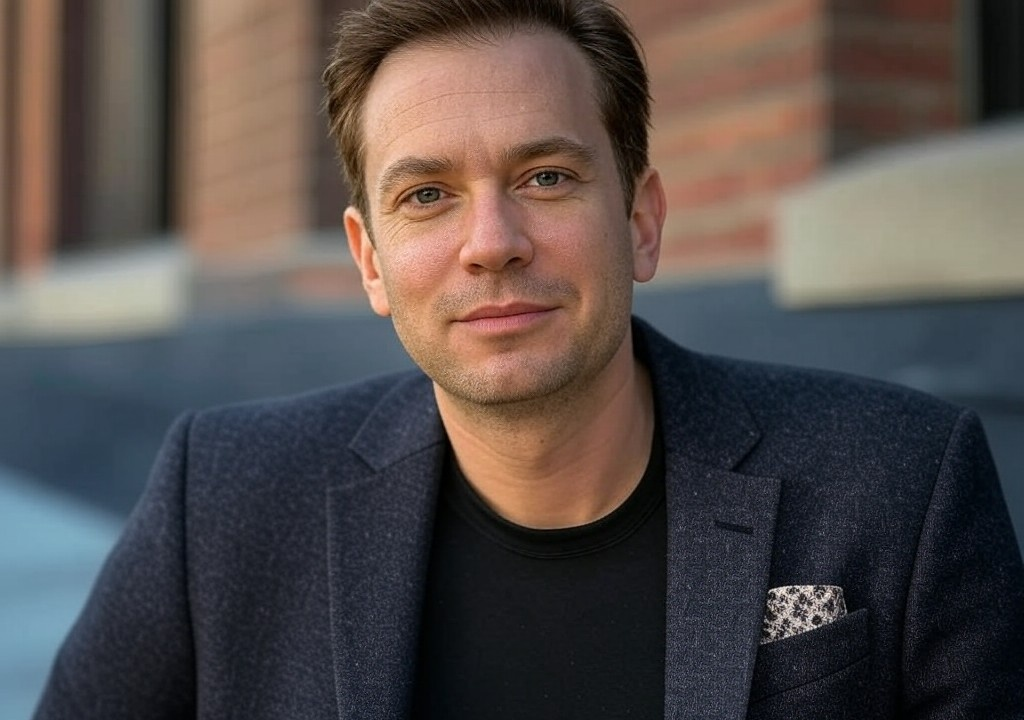“Maybe you should just… jump.”
This unsolicited advice came courtesy of my best friend, Jalen, who thought it would be helpful to push me—both figuratively and literally—into my first cliff-diving experience. We were perched on the edge of an unforgiving rock formation in Bermuda, a place that, until that moment, had seemed like a paradise for relaxation. The sunlit water below sparkled like something out of a screensaver, while the cliff’s jagged edges made me wonder if I’d updated my health insurance correctly.
Jalen thought a leap of faith was all I needed to conquer my fear of heights. I thought a new best friend might be a better solution.
I didn’t jump that day. The fear had me in a headlock, a WWE-style takedown that no encouraging speech or good-natured peer pressure could loosen. But this story isn’t about that day—or any of the other 29 years when my fear of heights won every battle. It’s about the one day, years later, that I finally fought back.
The Roots of the Fear
To be clear, my fear of heights isn’t one of those edgy, endearing quirks you can slip into conversations like, “Oh, I don’t eat cilantro” or “I only watch foreign arthouse films.” It’s the kind of fear that hijacks your body—the racing heart, shaky knees, beads of sweat on the forehead. It started as a kid during a family vacation to the Grand Canyon, where I peeked over the edge and immediately wanted to retreat into the café selling overpriced keychains.
It didn’t help that my dad, a larger-than-life Brooklynite who was afraid of nothing (except, oddly, pigeons), kept saying, “Come on, Julian. You’re missing the view!” He meant well—he always meant well—but anxiety doesn’t care about good intentions. It cares only about survival, and my brain apparently decided that altitude was its mortal enemy.
Growing up, I became an Olympic-level avoider of all things elevated. Iconic rooftop bars in New York? Nope. Ferris wheels on dates? Absolutely not. Even the upper level of the Brooklyn Heights Promenade gave me vertigo. My friends teased me, but I’d shrug it off with a laugh and a quip about how someone had to “keep it real at ground level.”
But deep down, I knew my fear wasn’t serving me. It was keeping me from experiences, from spontaneity, from standing at a literal high point in my life and saying, “Yes, this is mine, and I’m not afraid to take it.” And if that’s not a metaphor for relationships, I don’t know what is.
The Day Everything Changed
Fast-forward to Berlin, five years after the Bermuda debacle. I was there for one of my famous cultural-exchange stints, soaking up the world of minimalist art and currywurst. If you’ve spent time in Berlin, you’ll know it has a distinct rebellious streak, and something about the city whispered to me: “Stop holding back.”
So when I saw a flyer for an indoor rock climbing class, I made a split-second decision. It was odd—I didn’t tell myself to do it, not consciously. It was as if some rogue part of my brain said, “Listen, we’re tired of you being scared, so we’re doing something about it.”
At the climbing gym, I was greeted by Heike, a cheerful instructor who seemed to have been plucked straight from a Patagonia ad. Her enthusiasm was contagious, and before I could overthink it, I was harnessed up and staring at a two-story rock wall that looked, to me, a lot like Everest.
The first climb was shaky. My grip on the holds felt like a toddler clutching a crayon. My legs weren’t so much climbing as they were flailing. But then something clicked—sort of like hitting a rhythm on a treadmill once you’ve survived the awkward first five minutes. By the time I’d reached the halfway point, I realized I was doing it. Not gracefully and certainly not fearlessly, but doing it nonetheless.
And that’s the thing about fear: It’s not dismantled all at once. It crumbles piece by piece, like Jenga blocks. That day, and for the weeks of practice that followed, I didn’t try to obliterate my fear entirely. I just decided I’d outlast it.
Lessons From Love
It’s probably no surprise to you that I’m not just talking about heights anymore. Fear worms its way into every part of our lives, and relationships are no exception. I once dated someone who said, “Julian, sometimes you hold back like you’re waiting for the perfect moment—to be vulnerable, to be fully here. But ‘perfect’ moments don’t exist.” She wasn’t wrong.
Most fears come with an internal barometer that we obsessively check: Is this feeling safe enough, steady enough, risk-free enough? And while this instinct might have prevented our ancient ancestors from becoming lion snacks, it’s less useful when deciding whether to open yourself up to someone new or—gulp—say “I love you” first.
Fears, in relationships or otherwise, tell us that failure is fatal. But here’s the truth: Failure, if it comes, is rarely as catastrophic as we imagine. (Except, you know, if you’re free-climbing a mountain like Alex Honnold, but that’s neither here nor there.)
How to Conquer the Unconquerable
So what lessons can we take from me sweating my way up that Berlin rock wall—or finally letting someone past my emotional defenses?
-
Start Small
Whether it’s a first date, your first solo trip, or a first climb, it’s OK to take baby steps. You don’t conquer a lifelong fear in one go. You conquer it by trying, over and over, until the attempt feels routine and the fear feels silly. -
Find Your Anchors
Just like you wouldn’t climb a 50-foot wall without a safety harness, don’t tackle your fears without a support system. For me, it was friends who encouraged me to live bigger—and Heike, who didn’t judge my awkward scaling but rather cheered each small victory. -
Reframe Failure
Not every leap ends in triumph. The first time I told someone I loved them, they replied with a well-meaning, “Thank you.” (Ouch.) But here’s what I learned: The act of saying it, the risk itself, meant I was free of the fear. I walked away lighter, stronger. -
Laugh At Yourself
Humor is your ally. On more than one occasion during my climbing sessions, I’d slip just a little and yell dramatically, “Tell Brooklyn I love her!” Laughter is what makes fear leavable. It robs anxiety of its weight.
My Sky Is Yours Too
I’m not going to pretend I’ve transformed into that person who skydives for fun or posts Instagram stories from dizzying rooftops (still not my vibe). But now, when I find myself on the edge of anything—whether it’s a new physical height or a deeply emotional conversation—I remind myself: We’re all capable of more than we think. The air may feel thin and the ground impossibly far, but the view is almost always worth it.
So whatever cliff you’re staring down right now, whether it’s the one to a serious relationship or simply your own Berlin rock wall moment, know this: You don’t have to jump all at once. Just take a step. And then another.
Trust me, it’s better than the alternative: staying on safe, predictable, boring, unremarkable ground.




















